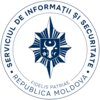The Security and Intelligence Service as the competent body responsible for developing and promoting state policy and exercising control over all types of electronic signatures, together with the Information Technology and Cyber Security Service (STISC), announces that the validity period of the public key certificate for users of the electronic signature extends from two to five years. Today, at a press conference, the authorities emphasized the reasoning and benefits of the action, as well as the importance of the legislative amendments.
In this context, representatives of the responsible authorities assured that this action helps to develop the service, offers comfort to users and facilitates the use of quality electronic public services online. Therefore, the Republic of Moldova lines up to the recommendations and standards of European countries. This action also simplifies the access to electronic services and helps to overcome the barriers in citizen-state interaction. It aims to reduce the costs of the electronic signature for end users but also to increase the widespread use of electronic services in the Republic of Moldova. The cost for purchasing a public key for the period of up to five years will be 650 lei. Those who have an electronic signature valid for up to two years will be able to use them until they expire.
Vasile Golubei, an SIS officer, stated that the institution has authorized the device put into operation today and it is safe to use. At the same time, the SIS is in the process of completing a new draft law that will transpose the European Union Regulation 910/2014 and will offer the possibility of providing new useful services to citizens. Moreover, the SIS initiated the amendment of the legal framework that extended the validity term of electronic signatures to 5 years. The institution actively involves in the process of digital transformation of the country.
So far, about 200 thousand users (natural and legal persons from various fields of activity) were assisted in getting their electronic signatures. Moreover, in the context of the new technology and digital tendencies, the state policy aims to upgrade and simplify the access to public services.

